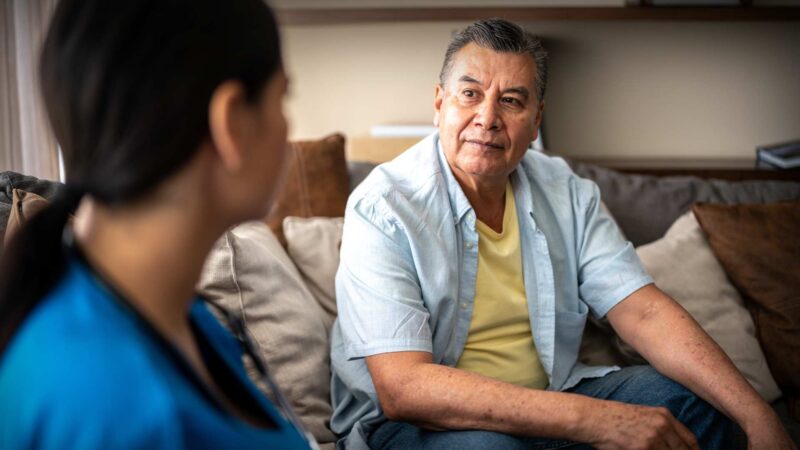Pharmacists and pharmacy staff faced extraordinary pressure during the COVID pandemic, with some losing their lives, highlighting the importance of ensuring workplace safety and mental health support.
The expansion of scope for pharmacists during COVID has highlighted the potential for community pharmacists to deliver further professional services, adding value to the pharmacy space.
With this in mind, as well as pharmacy development goals aligned with the UN’s Sustainable Development Goals, there has now been change in the global federation representing 4 million pharmacists across over 100 countries, with the election and appointment of an Australian pharmacist as President.
In late 2023, Paul Sinclair, was elected as the President of the International Pharmaceutical Federation (FIP), the first Australian to hold the position.
Mr Sinclair, a community pharmacist and former community pharmacy proprietor, has served on FIP for a number of years, including as president of its Community Pharmacy Section (2014–18) and chair of FIP’s Board of Pharmaceutical Practice since 2018.
He has also held several officer positions at the Pharmacy Council of New South Wales, the Australian Association of Consultant Pharmacists and the Pharmacy Guild, as well as board positions in not-for-profit organisations such as Asthma Australia.
He has had extensive experience in local government, serving as both a councillor and mayor of Campbelltown City Council. In 2019, Mr Sinclair was awarded a Member of the Order of Australia for his services to pharmacy, the community and local government.
Paul Sinclair’s extensive experience in the pharmaceutical industry, including his roles as President of the International Pharmaceutical Federation and chair of the Australian Association of Consultant Pharmacists, highlights his deep knowledge and expertise in the field.
His appointment will be ratified at the upcoming FIP Congress in Brisbane later this month. In accordance with the FIP Statutes, president-elect Paul Sinclair has commenced performing the duties of president following the unexpected passing of his predecessor Dominique Jordan in Switzerland.
Paul’s progression through the ranks of FIP demonstrates the impact and influence he’s had in representing the pharmacy profession on a global scale. In this Australian Health Journal interview, Paul talks about the 4 themes in the upcoming FIP Congress in Brisbane this month. He also talks about the challenges facing pharmacy with remuneration, professional service delivery and the workforce coming out of the COVID era.
About the International Pharmaceutical Federation (FIP)
The International Pharmaceutical Federation (FIP) is the global body for pharmacy, pharmaceutical sciences and pharmaceutical education. Through 152 national organisations, academic institutional members and individual members, FIP represents over four million pharmacists, pharmaceutical scientists and pharmaceutical educators around the world.
Founded in 1912, FIP is a non-governmental organisation with its head office in the Netherlands. Through partnerships and extensive pharmacy and pharmaceutical sciences network, FIP works to support the development of the pharmacy profession, through practice and emerging scientific innovations, and through developing the pharmacy workforce in order to meet the world’s health care needs and expectations.
You Might also like
-
Understanding extracellular vesicles in cancer therapy research
Joy Wolfram is an Associate Professor at the Australian Institute for Bioengineering and Nanotechnology and the School of Chemical Engineering at the University of Queensland in Australia. Originally from Finland, she earned both her bachelor’s and master’s degrees in biology before transitioning to engineering with a PhD in nanotechnology completed in China. Wolfram has over a decade of experience working in hospitals in the United States before joining the University of Queensland.
Her research focuses on extracellular vesicles, which are crucial for cell communication both locally within tissues and over longer distances between organs. Her lab studies the roles of these vesicles in both health and disease, particularly in cancer. They investigate the harmful messages released by cancer cells that aid in tumour growth, specifically in breast cancer, while also exploring how to harness beneficial extracellular vesicles from healthy individuals as potential therapeutics.
-
Early detection & surveillance guides for pancreatic cancer
Pancreatic cancer remains one of Australia’s deadliest cancers, with five-year survival rates hovering at just 14%, with little improvement over several decades. Often called the ‘silent killer’, the disease frequently presents with minimal or vague symptoms, resulting in late diagnoses and poor outcomes. Pancare Foundation is leading the rollout of new clinical resources and surveillance guides to support healthcare professionals in identifying at-risk patients and promoting early detection.
-
Rapid trend shift in radiology technology and accessibility
Dr Mansoor Parker obtained his medical degree from the University of Tasmania. He then completed his specialist radiology training at Nepean Hospital, Sydney with subspecialty interests in Interventional Radiology and Pain Management, Musculoskeletal, Cardiac and Abdominal Imaging. Dr Parker is a qualified specialist since 2005 and is a member of the Royal Australian and New Zealand College of Radiologists and the exclusive Australasian Musculoskeletal Imaging Group (AMSIG) as well as the Interventional Radiology Society of Australasia (IRSA).



